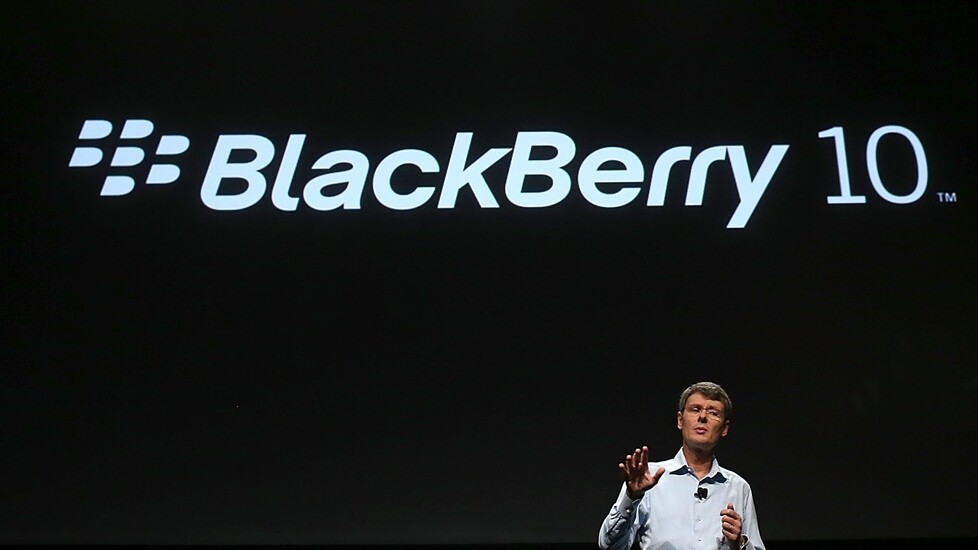
The news is out: BlackBerry has managed to secure $1 billion in funding from Fairfax Financial and a number of other investors in order to keep driving the business forward.
While it’s perhaps not the ideal result for the company – success in finding a partner willing to effectively buy it out and go private would have removed it from the limelight of the stock market and given it breathing room from investors, in some sense – finding a consortium willing to put up one billion dollars to back your company is likely not the worst possible result either.
However, the other nugget of info to come out of this deal is that the current CEO, Thorsten Heins, will be stepping down. What this means is the company will be looking to its future through a new set of eyes for a fresh beginning, sort of.
But with Heins now stepping aside to make way for an incoming, albeit interim CEO once the deal is completed, it’s time to wonder if he really did anything that wrong.
While it can’t be said that the company’s fortunes have been drastically turned around since his appointment in January last year, I’d argue there’s perhaps little he could have done differently given the time scale.
Sure, he said a few things that made you wonder if he was perhaps looking at the same future for BlackBerry as the rest of us were, but his real problem was simply being picked as the person for the difficult job of turning it around at a time when outside vision would have perhaps served the role better.
Legacy issues
What Heins inherited from former joint CEOs Mike Lazaridis and Jim Balsillie was a company moving at a glacial pace when it needed to be going full-speed. It had already failed to respond to a demand from consumers and a shift in the market to full touchscreen devices and instead continued churning out unremarkable devices equipped with its trademark Qwerty keyboard that reeked of yesterday. And while there will always be fans of that keyboard, when a whole market has moved from under you, it’s time to change tack.
That’s not to say it didn’t try and play catch up. Touchscreen devices made it to market under the Storm range, but they had questionable performance and were ultimately running an operating system not designed for touch input. Playing catch up is never ideal, playing catch up with a form factor that you have little to no experience with and getting it right first time is harder still, if not impossible for a company like BlackBerry.
Thankfully for BlackBerry, one of the strengths of the business has historically been the enterprise market, and it was this that kept it viable in its more recent troubled financial history. Now, it looks like this will be the core driving force for the company for the future of the brand.
And still, there’s little Heins could really have done about the declining market share of its handset business. Almost exactly one year after taking up the top-spot, Heins oversaw the launch of BlackBerry 10 – a brand new operating system designed to work on a range of devices, all with different form factors. It also introduced a new range of touchsreen devices (and Qwerty-equipped models, to keep loyal fans happy) that are actually pretty decent. But still, it hasn’t been enough to turn around its fortunes.
Carolina Milanesi, vice president of consumer technologies and markets at Gartner, told me:
To some extent he did not do anything wrong with the products and the software that came to market under his watch. The problem was timing – it was too late.
However, right at the start of his leadership, Heins said at least one thing that should have sounded alarm bells:
There is nothing wrong with the company as it exists right now.
Clearly, that wasn’t the case then, and it definitely isn’t the case now. Perhaps, Heins – having risen his way up through the ranks at the company since 2007 – was just too ingrained in ‘the old way’ of thinking, too closely tied to the company to give it the fresh start it really needed.
Along the way, there’s one important lesson that BlackBerry seems to have picked up and that’s the importance of software and ecosystem. It wasn’t just a lack of devices that people wanted that hurt BlackBerry, it was also missing the whole app and developer ecosystem that lure people to any device in the first place.
Again, it seems BlackBerry realized this late in the game and has since fought to up its game and get developers on board in a number of different ways, ranging from its BlackBerry Jam developer events to its promotions that paid developers to port their apps across to BlackBerry 10. Hell, it even promised to guarantee revenue for any developers that made apps to its Built for BlackBerry standard. None of these measures have been enough to change trajectory quickly enough, but they’ve still been moves in the right direction.
The future?
Looking at who BlackBerry has chosen for its Interim CEO position, John S Chen, gives a big hint as to the likely future of the company: software and services.
Chen was formerly in charge of Sybase, an enterprise software and services company (there’s that hint) dealing in management, analytics and data warehousing. Chen left the company two and half years after it was bought by SAP after 15 years running the business. Clearly, he knows a thing or two about enterprise software and services.
Milanesi told The Next Web that it could be the key to the company’s prosperity in future:
The appointment of Chen is a clear indication that BlackBerry is moving away from the devices business first and looking at services and software first [instead]. This is where BlackBerry has a chance as long as they pursue it aggressively, and not as a means to save the devices business which is how they looked at [ it ] until now.
Whether or not BlackBerry does plan on going down the software and services route with full commitment is unknown at this point, but with ‘a software guy’ now firmly in charge, it certainly looks like a possibility, if not a probability. Heins did little wrong, but he also didn’t have the vision and pace required to reboot an entire company for a new generation of devices and users – and now BlackBerry handsets as we know them could end up paying the price.
Featured Image Credit – Justin Sullivan/AFP/Getty Images
Get the TNW newsletter
Get the most important tech news in your inbox each week.




